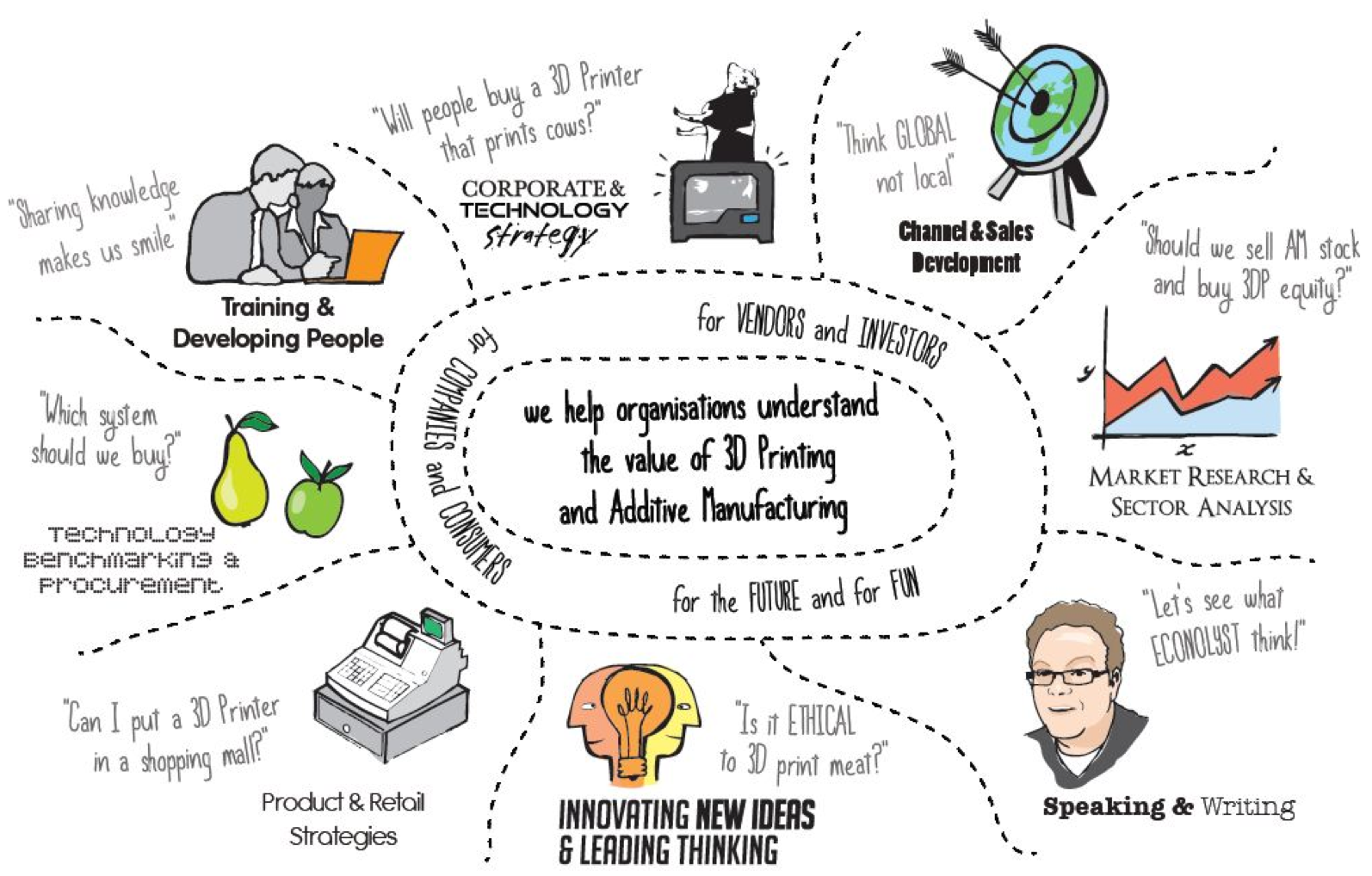Upon consolidating its 3D printing and manufacturing services into a single division, Stratasys Direct Manufacturing, Stratasys is expanding its role as a service provider from producing parts for businesses to providing expert consulting services. Econolyst, an industry-leading consultancy and research firm based in the UK, has just joined the company to form the new Stratasys Strategic Consulting Division.
Econolyst is headed up by Dr. Phil Reeves, who has been providing key 3D printing expertise in the field for the past twenty years. In addition publishing industrial reports, such as those produced in collaboration with 3D Printing Industry, Econolyst has lent its knowledge regarding the economic, business, social, and environmental advantages of 3D printing to governments, businesses, and organizations across the globe. As his firm is folded into Stratasys Services Group, under the Stratasys Strategic Consulting Division, it will aid Stratasys customers in more effectively understanding 3D printing in order to better incorporate the technology into their businesses, ultimately leading to greater widespread adoption of 3D printing as a whole.

Stratasys CEO David Reis said of the acquisition, “We believe that Additive Manufacturing technology is poised to enter a new phase of increased adoption in a broad range of industries, disrupting traditional manufacturing processes. Expanding our services offering is a key pillar of our investment plan to capitalize on this opportunity. Stratasys has the unique ability to provide organizations with a broad range of Additive Manufacturing technologies and solutions, coupled with our in-depth process specific expertise. The addition of Dr. Reeves, a thought leader in the industry, and his team will further strengthen Stratasys’ services capabilities, and we are excited to welcome them to Stratasys.”
The move, I think, is a brilliant one. While other 3D printer manufacturers have begun to provide their own consulting services, an almost necessary extension of customer service in the industrial 3D printing field, the acquisition of this well-established firm provides Stratasys with an unprecedented ability of a single 3D printing company to offer research, advice, and expertise in a huge range of 3D printing technologies and overall market sectors to its customers. Having covered and worked with Econlyst in the past, I can attest to the fact that the agency understands the full breadth of 3D printing processes, their applications to every area of the market (covering everything from medicine to consumer goods), as well as how general market sectors are developing.
The Stratasys Services Group will, then, be made up of the Strategic Consulting Division, along with the Professional Services Division, meant to implement 3D printing in their businesses in the most efficient and potentially disruptive ways possible, and the Customer Support Division, which is the company’s customer service department that handles maintenance and training. And, due to the large technology portfolio of Stratasys Direct Manufacturing (including non-Stratasys 3D printing equipment), the division won’t have to promote the company’s own 3D printing machines. Stratasys states in their press release that the Strategic Consulting Division “will provide independent, expert consulting around Additive Manufacturing strategy development, ideation and innovation and implementation planning across technologies and solutions. Importantly, it will remain technology agnostic.”
Because not every business will want to invest in the thousands, or sometimes hundreds of thousands, of dollars necessary to purchase their own industrial systems, the new Stratasys Strategic Consulting Division will be able to direct Stratasys customers to the appropriate technologies housed by Stratasys Direct Manufacturing. This establishes Stratasys as a one-stop-shop for limited run manufacturing, prototyping and, when the technology is ready, mass customization (the mass 3D printing of individually unique products).
In the face of the recent lawsuit filed against the company, the new division is a huge asset to the company and may, in my opinion, even restore investor confidence in Stratasys. Then, one day, maybe GE, or some other large corporation, will acquire Stratasys and make for a nice 3D printing division for an even more powerful multinational. Then again, maybe capitalism will reach an equilibrium driven by the collective knowledge that, sometimes, bigger is not always better and that it is possible for even the biggest companies to become to too large to effectively manage themselves. Just a thought!



